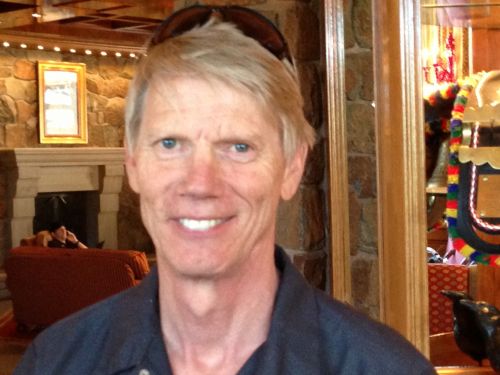SNOW BASIN, UT (BRAIN) — QBP’s founder Steve Flagg occupies a unique position within the industry. He oversees two separate businesses — QPB, arguably the industry’s largest distributor, and a flourishing but quirky bicycle manufacturing sector that successfully slices and dices the market for niche sales.
Count the bike brands: Surly, Salsa, Civia, All-City and Foundry and within each brand are bikes that further slice up consumer demand.
No other company in the industry has placed so much faith in the creative introduction of offbeat brands and bikes than QBP.
And Flagg, who considers himself a steward rather than a boss, places a great deal of faith in the future of independent bicycle dealers and their ability to cope in a rapidly changing marketplace. And it’s his company’s role to offer them products to help differentiate them in a highly competitive market.
Flagg took a few minutes out of his schedule at Saddle Drive, the company’s annual dealer event, to offer his thoughts on a range of topics.
BRAIN: The success of your company, especially your bicycle division, depends upon retailers who see value in bikes like the Pugsley, the War Bird (a gravel bike), the Spearfish and others. What do you see in dealers that others may not?
Flagg: There are fabulous dealers out there and many of them are not so well known. These are dealers who create value, who are talented and who are creative. I think many suppliers have always underestimated them. That's why SmartEtailing developed the Buy Local Now program and that's why I took a majority stake in the company to help advance the progress of this program. But there’s no question that it’s a challenge right now for brick-and-mortar retailers. Still, there are a ton of small and medium size dealers who are very successful and who are showing us the way.
BRAIN: What led you to develop these brands and to stick with them as they found a market?
Flagg: It started with Surly as the kind of bike we would want to own—steel, durable, last forever but built with quality kind of bike. We actually started with a one-speed mountain bike called the 1X1. It was a shop-rat bike; the feel of steel and all that. People were shocked. I think we were ahead of our time with a single-speed. And then came the Karate Monkey, a 700c mountain bike, sort of an early 29er. We are not the family bike brand. It was a collection of outrageous bikes that I would have liked to have owned back in the 1970s when I was a retailer.
BRAIN: How do you manage this family of independent brands and independent staff?
Flagg: Organizationally we give them a lot of latitude. If I go out and hire really great people, it’s up to me to get out of the way and let them run with it. But we do have a rule: Succeed or fail fast. We tried a unicycle and it was a fast failure. We set up the bike division because I was afraid we would take our eyes off our core mission, distribution. So each brand has its own financials, hires and fires its own staff, and each is set up separately. We (QBP) charge back for backend support. And we charge each brand for distribution as well. Each is responsible for making it work. Profitability, to me, means that customers believe in the products they are creating.
BRAIN: As you talk with dealers what are they telling you about the season?
Flagg: First, the economy is stable, housing sales are up, the stock market is up and everyone’s 401(k) is growing again. We had a conservative projection for growth this year, but you could see what was happening with the NOAA weather reports. You could see the cold weather and then the rain all through March, April, May and June. Those reports are really good. The weather was really quite significant, so it’s no surprise to me that sales are down. I can’t remember ever seeing the climate having so pervasive an effect sales nationwide. Usually it’s in pockets, but not this year.
BRAIN: Will the industry, and retailers specifically, have a chance to recover lost sales?
Flagg: We’re looking at sales at QBP as being flattish for the year, but we did see a great recovery in July. Essentially, June sales went into July; July sales will go into August; and August sales will go into September. So I don’t think we will recover from those lost sales in the spring. It’s very disappointing.


